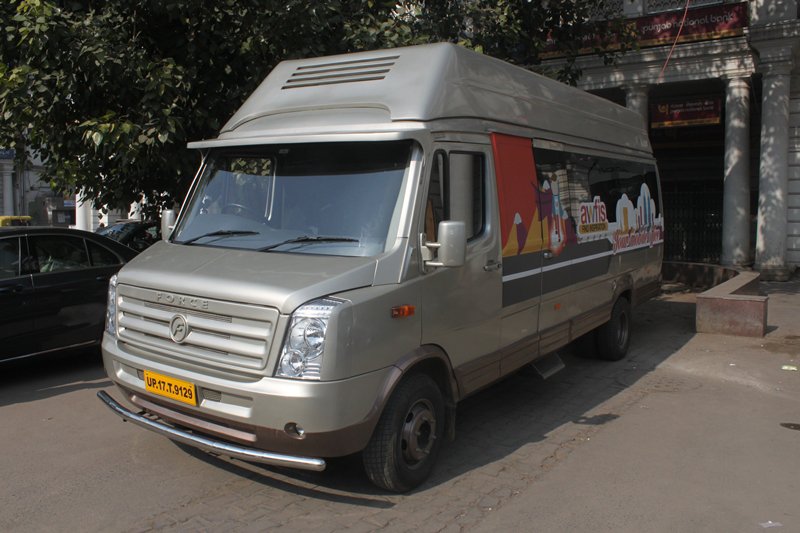It isn’t just start-ups that prefer co-working spaces. Big firms, too, are attracted by the value-added services these places offer
E-commerce firm Snapdeal shut down its Malad office in Mumbai last year in October, to move to a new office in Andheri West. However, the only difference was instead of moving into a space owned by the firm, the team moved into a co-working space run by Awfis. Currently, about 90 Snapdeal employees work in Awfis’ office.
If earlier the role of a co-working space was well-defined, so was its clientele that largely comprised start-ups which, after taking their first step in the world of technology, wanted a rather cheaper roof over their heads. Not any longer. In fact, even companies in the business of providing co-working space have realised how large firms too are eying a spot in their offices.
Innov8, which will be opening a new co-working space in Bengaluru soon, claims to have created the space keeping in mind the demand of large firms. “There will be many private offices in the upcoming space in Bengaluru to meet the needs of bigger companies,” said
Russell Longjam, head of marketing, Innov8 Co-working. At Awfis, Snapdeal isn’t the only big internet firm to shift its team to a co-working space. Online classifieds firm OLX also has a 10-member team operating from Awfis Bengaluru. Meanwhile, a traditional firm such as BNP Paribas—a financial services company—too, has joined the co-working space revolution.
“Compared to setting up one’s own office, which would require a company to invest in rental, and other basic office infrastructure, booking a couple of chairs in a co-working space requires less investment. Hence, now large firms such as Snapdeal and OLX amongst others have started using the shared space,” said Amit Ramani, founder and CEO, Awfis.
Headquartered in Delhi, Awfis Space Solutions currently has 14 offices with 3500 seats. The co-working space provider has rolled out many packages for companies depending on their needs. For example, the rent of a cabin for a month with four to six seats is R9000-14000 a month. It also sells fixed seats (specific seats with alloted desktops) at R8000-10,000 a month, while flexi seats are being leased out for R4500-6500, a month.
“We plan to increase the number of seats to 7000 by March 2017 and 25,000 seats by 2018,” added Ramani.
Similarly, OneInternet is another firm which provides co-working space in locations such as Connaught Place in Delhi, besides Gurgaon where it has a 7000 sq feet office area and Bengaluru where it runs an office space of 25,000 sq feet. In a prime location such as Connaught Place, the company charges a rental of R7500 for a cabin with two seats. It also runs several packages for short duration, apart from selling individual seats.
“For instance, at a price of R8999, excluding taxes, a person can book one seat for 18 days,” said Himanshu Bindal, founder, OneInternet. While 80% of companies using OneInternet are start-ups, the rest are small and medium enterprises.
According to Bindal, OneInternet offices have 95% occupancy during the day and 75% at night. Day rentals come for a lower price. For Venture Catalyst, which operates a co-working space in Mumbai, these spaces also work as a centre for cross pollination. “On one hand you have start-ups setting up their operations, on the other there are companies which provide human resource services and accounting services to the same set of start-ups setting up operations,” said Apoorv Ranjan Sharma,co-founder and president, Venture Catalysts.
However, with too many players in the game now, co-working spaces have evolved beyond providing just a space and basic office amenities to offer value-added services.
“We have tied up with Amazon Web Services. The tie-up allows us to provide free credit to start-ups, further allowing them to use the cloud service. Additionally, we have facilities such as personal gym, break out spaces, etc,” said Bindal.
Meanwhile, Awfis claims to have cut deals with restaurants such as Haldirams and online food apps such as Fassos, apart from holding different food festivals. “These tie-ups allow the employees to avail discounts at various restaurants,” explained Ramani of Awfis.
Even as more players continue to emerge in the business of co-working, for Ramani and his contemporaries who started early in the business, the real game is about scaling up operations.
Agrees, companies like The Workforce Consulting Group, a human resource consultancy. “Instead of keeping the entire team under one roof, working out of a co-working space allows us to split the team so that they can be near key clients, which increases efficiency. Also, using a co-working space brings down the cost of operations by 50%, which is an added advantage,” said Ruchi Vijay, co-founder, The Workforce Consulting Group. Vijay’s team is based in Awfis’ office in Delhi.
(This Awfis coverage appeared in The Financial Express on January 23, 2017 under the title ‘ Not just start-ups, Internet firms to go for co-working spaces.’ You can read the full story at: http://www.financialexpress.com/opinion/not-just-start-ups-internet-firms-to-go-for-co-working-spces/518507/ )









